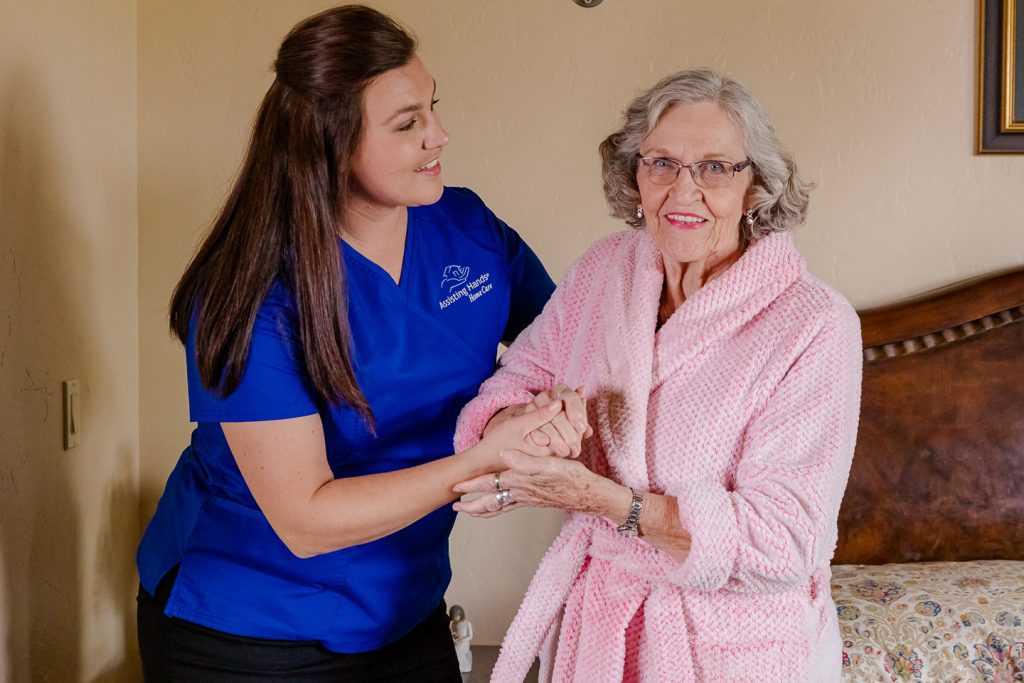
A senior’s ability to hear is important to daily life. It is critical that aging people clearly understand a doctor’s verbal instructions, hear the fire alarm blare or the doorbell ring and respond to warnings. Following are common myths about hearing and the truths behind them.
Myth 1: Hearing loss is unimportant
Aging people who have grown up listening to the conversations and the world around them feel the sting when hearing loss occurs. Depression is a possible outcome when seniors are unable to hear well. People with hearing loss may withdraw from social interactions out of embarrassment or frustration.
Seniors may feel misjudged when they suffer from poor hearing. For example, strangers or acquaintances who are unaware that the aging person is hearing impaired may erringly conclude that the senior is uncooperative, unresponsive, or confused. Untreated hearing loss reduces quality of life.
Myth 2: Hearing loss improves on its own
Seniors who realize they are losing their ability to hear should not ignore their symptoms. Untreated hearing loss can worsen. Plus, the loss of hearing is irreversible. As soon as seniors show signs of hearing loss, it is important that they visit the doctor for treatment.
Myth 3: Hearing loss does not affect cognitive health
Hearing loss and the risk for developing dementia are closely linked. Studies show that seniors with impaired hearing have a greater chance of being diagnosed with dementia than elderly people with normal hearing. Cognitive abilities also decline at a faster rate in seniors with poor hearing.
Myth 4: Seniors are aware of losing their hearing
Not all older adults are cognizant of the fact that their hearing abilities are gradually declining. Although these individuals may not fully realize that hearing loss has set in, they should be aware of the various symptoms of the condition and schedule a visit with the doctor.
For example, signs of hearing loss include having trouble hearing over the telephone, finding it difficult to follow conversations between two or more people, and needing to turn up the television so loudly that family members start to complain. Background noises also make hearing difficult.
Myth 5: Others are unable to speak clearly
Another telltale sign of hearing loss in the elderly is constantly blaming others for mumbling. Aging adults experiencing the onset of hearing loss may also be unable to understand when women or children speak to them. Hearing-impaired seniors often ask others to repeat themselves.
Myth 6: Hearing loss is not caused by loud noises
Hearing loss is commonly caused by loud noises. The inner ear can become damaged when the senior is exposed to the loud whirring of the lawnmower or the snow blower. Similarly, loud music can damage the inner ear and result in permanent hearing loss.
Older adults can protect their hearing by turning down the volume on the television, stereo, or headphones. Seniors can also move away from areas polluted by exceptionally loud noises. Wearing earplugs or other forms of ear protection can save a senior’s hearing.
Myth 7: Health conditions do not cause hearing loss
The reality is that certain health conditions that commonly affect seniors can contribute to a loss of hearing. Diabetes and high blood pressure are two such diseases. A heart condition, stroke, or tumor can also affect a senior’s ability to hear. Similarly, viruses and bacteria can lead to hearing loss.
Myth 8: Medications do not cause hearing impairment
Unfortunately, some medications, especially ototoxic drugs, can lead to hearing loss. Ototoxic medications used to treat cancer or heart disease can damage the inner ear. Certain antibiotics are ototoxic, and even aspirin at certain dosages can lead to hearing issues.
Myth 9: Hearing aids are the only devices to help with hearing loss
A physician may advise a senior with hearing loss to wear a hearing aid. While hearing aids amplify sounds and allow older adults to hear better, they are not the only devices on the market. Seniors can turn to assistive-listening devices, mobile apps and alerting devices, too.
Hearing-impaired seniors who utilize alerting devices receive visual signals when the doorbell rings, the smoke detector goes off, or the alarm clock rattles. The vibration of the smartphone can alert a senior to an incoming call. A flashing light will indicate a visitor is at the front door.
Myth 10: Seniors with hearing loss are unable to cope
Even when hearing loss occurs, seniors can make minor adjustments to enhance their ability to contribute to conversations. Older people should let others know they have a hearing problem. Seniors can ask people to face them as they speak and use clearer, louder speech (while avoiding shouting).
Aging adults can also pick a quieter place to carry on a conversation. Simply positioning oneself between the speaker and the source of a loud noise can improve a senior’s ability to hear the discussion. Plus, facial expressions or gestures offer valuable clues as to what is being said.

Hearing loss does not need to reduce a senior’s quality of life. Receiving early treatment can help significantly. Older people with hearing impairment may need help at home, however. When they do, Assisting Hands Home Care is available to provide the dependable support that families trust.
Our in-home senior care services start with an assessment of care needs. We develop a care plan to meet all the non-medical needs of the senior. Typical responsibilities our caregivers perform include assistance with daily hygiene routines, transportation, medication reminders, meal preparation, and grocery shopping.
Assisting Hands Home Care professionals are also excellent companions. Even if your elderly loved one is hearing impaired, we include them in conversations. Companion caregivers remain positive and patient, speak slowly, and reduce background noises to give seniors a better opportunity to listen.
Whether the senior in your life is hearing-impaired or requires dementia care, Assisting Hands Home Care will meet their care needs. Our comprehensive non-medical care services are available to seniors living in Glen Ellyn, IL | Warrenville, IL | Naperville, IL | Plainfield, IL | Westmont, IL | Woodridge, IL | Lisle, IL | Wheaton, IL and the surrounding areas. Call us today at (630) 634-9316 to schedule an in-home consultation for quality home care.















